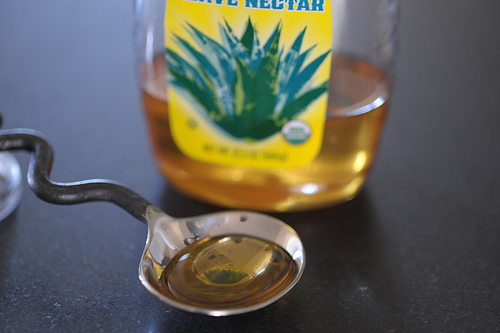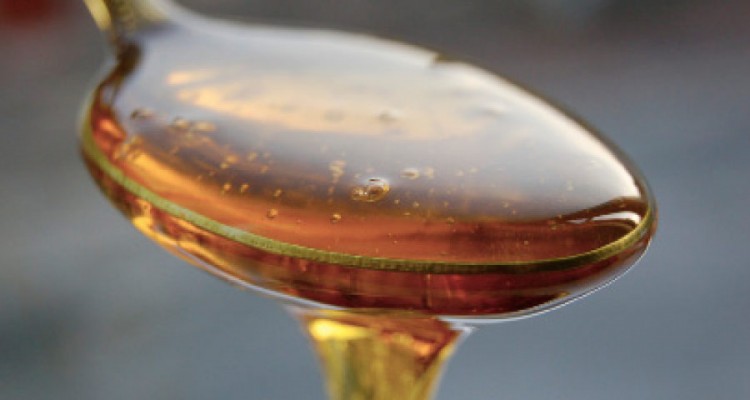
Agave syrup is another sweetener that has grown hugely popular with health-conscious people in the past few years. It’s been marketed as a healthy, all-natural sweetener option with a low glycaemic index, and is found in many mainstream and specialist products, like cereal bars, drinks, and raw food treats. It’s about one and a half times sweeter than sugar and actually comes from the same plant that’s used to make tequila!
It contains about the same amount of calories as sugar – 15 to 17 calories per serving. Though, it’s 3 times sweeter than sugar, so less is needed to achieve the same sweetness.
But is it really too good to be true? Yes, unfortunately so. Despite its powerful marketing claims, we don’t just get the agave plant’s raw nectar. Instead, it’s been highly processed before it reaches our desserts, pancakes, tea and coffee.
Even the American Diabetes Association lists agave as a sweetener best to limit for diabetes sufferers, along with table sugar, honey, maple syrup and all other types of sugar and sweeteners. Despite us being told that agave is better for those with diabetes and blood sugar issues as it’s a low GI sweetener, the Glycaemic Research Institute conducted clinical trials which found that agave syrup sparked an insulin response in diabetics. My favourite plant-based sweetener is Stevia, which is safe for both diabetics and those on anti-candida diets. It doesn’t spike blood sugar and insulin levels, it’s calorie-free and amongst the most natural sweetener options.
The major problem with agave is that is contains up to 90% fructose, higher than sugar, honey and even glucose-fructose corn syrup. Its high fructose content contributes to its low glycaemic index.
But fructose is terribly bad for our weight, health and complexion. The damage that glucose-fructose syrup can do has been well-researched, and that has a lower fructose content at about 55%. A study published in The Journal of HepatoBiliary Surgery and Nutrition in April this year associates it with non-alcoholic fatty liver disease (NAFLD) and ‘metabolic abnormalities’. It describes NAFLD as “a significant risk factor for developing cirrhosis and an independent predictor of cardiovascular disease.”
My conclusion? Agave is simply not worth the health risks and it won’t support your skin and body’s health.

